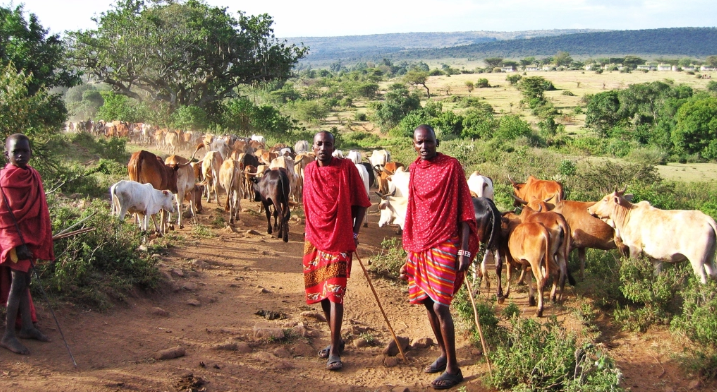US: +1 435 667 4107 Africa: +250 788 969 263 Email: info@eastafricasafaritours.com
Best Time to Visit Masai Mara in 2025: When to Go & Why
Planning a trip to Kenya’s iconic Masai Mara in 2025? Discover the best months for wildlife viewing, the Great Migration, and budget-friendly safaris in this essential seasonal guide.
Mark Axelson
4/12/20253 min read


The Masai Mara National Reserve is one of the most spectacular safari destinations in the world—home to the Big Five, endless golden savannahs, and the world-famous Great Migration. But when is the best time to visit the Masai Mara in 2025?
Whether you're chasing wildebeests, looking for quieter experiences, or hoping for the best deals, this guide breaks down the ideal time to visit based on your travel style.
Quick Summary: Best Time to Visit Masai Mara in 2025
The Peak Dry Season, which runs from July to October, is considered the best time to visit the Masai Mara, especially for first-timers and wildlife enthusiasts. During this period, the weather is dry and wildlife viewing is at its best, with the famous Great Migration in full swing and excellent chances of spotting the Big Five.
The Green Season, from November to March, offers a different kind of magic. The landscape becomes beautifully lush after the short rains, and with fewer crowds, it’s perfect for photographers seeking vibrant scenery and budget-conscious travelers looking for good deals. This period also includes the calving season, which brings plenty of predator-prey action and adorable baby animals.
Lastly, the Long Rains fall between April and May. This is the least popular time to visit due to heavier rainfall, which can make some roads challenging. However, it’s an excellent time for birdwatchers and those seeking a quieter safari with minimal tourist traffic, as well as significant discounts at some lodges.
1. July to October – Peak Season & Great Migration
Best Time for: Game viewing, river crossings, dramatic predator action
This is the most popular and rewarding time to visit the Masai Mara. It coincides with the Great Migration when over 1.5 million wildebeests and zebras crossed the Mara River from Tanzania’s Serengeti into Kenya.
Expect: Iconic river crossings, large predator activity (especially lions and crocodiles), dry weather
Crowds: High (book early—especially for July & August)
Costs: Premium pricing for lodges and flights
Tip: For the best migration viewing, stay near the Mara River, Mara Triangle, or Mara North Conservancy
2. November to March – Green Season (Low to Mid-Season)
Best Time for: Photographers, birdwatchers, budget-conscious travelers
After the short rains in November, the landscape transforms into a lush, green paradise—perfect for stunning photo backdrops and newborn animal sightings.
Expect: Calving season, fewer tourists, vibrant colors, excellent birding
Crowds: Lower, more intimate safari experience
Costs: More affordable lodge rates and deals
Tip: January and February are particularly lovely—dry, warm, and scenic.
3. April to May – Long Rains (Off-Season)
Best Time for: Birdwatching, serenity seekers
These are the wettest months in the Masai Mara, making them the least visited. While some lodges close, others remain open with significantly reduced rates.
Expect: Rainy afternoons, muddy trails, fewer vehicles in the park
Crowds: Very low (you may have entire areas to yourself)
Costs: Deep discounts at many lodges
Tip: Ideal for hardcore photographers and birders looking for solitude and vibrant wildlife scenes.
Wildlife Sightings Year-Round
The Masai Mara is one of the few places in Africa with reliable wildlife viewing throughout the year. Resident lions, elephants, leopards, hyenas, and cheetahs do not migrate and can be seen in all seasons.
However, if witnessing the Great Migration is a priority, plan around July to October.
When to Go for the Best Safari Photos
Dry season (July – Oct): Clear skies, golden light, wildlife congregates at water sources
Green season (Jan – March): Lush backgrounds, dramatic skies, baby animals
Avoid: April–May if you want clear game drive conditions (unless you love moody weather shots)
Budget Tips for Visiting in 2025
Travel in March or November to enjoy lower rates but still good conditions
Book early if traveling in July–August for the migration (some lodges sell out 6–12 months in advance)
Consider staying in conservancies outside the main reserve for more exclusivity and better value
Final Thoughts: What’s the Best Time for You to Visit Masai Mara?
Want bucket-list experiences and high drama? → Go July–October
Prefer peace, scenery, and lower prices? → Try January–March or November
Looking for total solitude and discounts? → Visit in April–May
No matter when you visit, Masai Mara never disappoints—it’s one of the most wildlife-rich corners of Africa, with unforgettable moments around every bend.
Explore
Discover breathtaking safaris and unforgettable adventures.
Connect
Support
info@eastafricasafaritours.com
+250 788 969-263
© 2025. East Africa Safari Tours Inc., All rights reserved.
Main Office
788 N 2150 W Circle, Cedar City, UT 84721, USA
Contact No.: +1 435 667 4107
Satellite Office
Telephone No.:+250 783 337 094
Mobile No.: +250 788 969 263
East Africa Safari Tours Inc.
